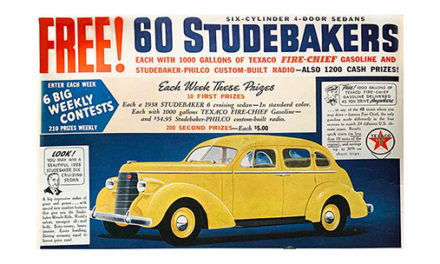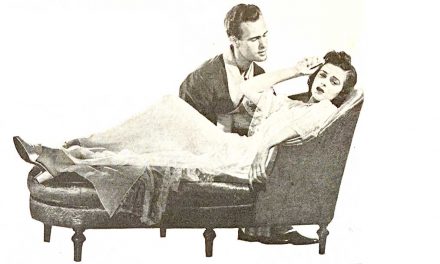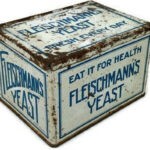Any 20th Century advertising portraying
“a woman’s place” would be politically incorrect today
Please review the advertisements in this post about advertising’s portrayal of “a woman’s place,” with a specific mindset: that we reach out to different media depending upon the different role we are in at any given moment.
A role is a state of mind. It can be driven by occupation or interests, by prevailing circumstances or, yes, by gender.
People have different roles at different times of the day, the month or the year. People, male or female, will read business periodicals when they are in an office and travel magazines when they plan a vacation. An investor, who plays golf, will be attracted to financial media when in the role of an investor; he or she will read sports magazines or sports pages when in the role of golfer.
A man or woman—at one and the same time—can be an investor, a sports fan, a parent, a student, a vacationer, a home maker, a planner of dinner for the family or guests. The role is different for each state of mind.
Advertisers promoting consumer or industrial goods and services—be it advanced machinery or kitchen appliances, sporting goods or leisure activity—will create advertisements with appeal to potential customers—men or women—when they are most likely to be in a purchasing role related to the product or service being offered.
Magazine content is directed to readers in their roles at the time they hold the magazine in their hands. Engineering Digest appeals to engineers when they are in that role where their technical knowledge and skills are being applied. Good Housekeeping, as the title suggests, is directed to the reader when that reader is in the role of homemaker, not when the reader is in the role of investor, or vacationer, or sports fan, or engineer although they could be any or all of those some other time.
A woman would read Engineering Digest in the role of engineer and Good Housekeeping in the role of homemaker.
These would be unacceptable today. They show that manufacturers and their creative advertising teams apparently believed there was “a woman’s place”

“For there, in the sunny kitchen of the new home stands her gleaming Moffat “Golden Jubilee” Electric Range”

This was 1932. Moffat had been making cooking ranges in Canada for fifty years. Their golden Jubilee!
Take a minute to read this advertisement in Maclean’s Magazine and wonder how the manufacturer’s advertising agency viewed women
“ HAPPY DAY! Happy Bride! The kiss at the altar .. . the triumphant strains of the “Wedding March … the flowers … confetti … felicitations. Then, the hurried leavetaking … the honeymoon … and, at last, the joy of coming home, to embark on the great adventure of housekeeping.
Wow! Just what every woman wants — housekeeping! But what a thrilling adventure housekeeping promises to be!
“ For there, in the sunny kitchen of her new home stands her gleaming Moffat “Golden Jubilee” Electric Range … her very own, for life! “
Sounds like a prison sentence. But wait, there’s more.
“What bride wouldn’t be proud of such a range? Beautiful … immaculate … modern to the minute … a fast, sure efficient worker … with undreamed-of refinements and labour-lightening features, and a marvellous thermomatically-controlled oven that bakes and roasts without even watching!
Don’t you just love the phrase “labour-lightening? Wouldn’t you just love to cook with such a range?
No guessing, no uncertainty, no disappointments.
And here is the appealing pitch at the end of this —
Think what new laurels you could win … what delicious surprises you could offer the family … how much more delightful cooking could be!
All this and the new Moffats “cost no more than ordinary ranges.”
She was married six months and she wanted to give up housekeeping until she found Old Dutch
Really?
She said she wanted a job that takes brains and the little Dutch girl told her housekeeping takes brains if you do it right. “Old Dutch gets you through yur work in half the time.”
In the final frame the new groom says: “No more complaining about the daily grind of housekeeping”
And she says “I find it’s easy and interesting with Old Dutch.”
How well would this advertisement sell today?


Fifty years ago, “A Woman’s Place”, published in the Journal of Marketing Research, summarized a study of the roles portrayed by women in magazine advertisements. Alice E. Courtney, Sarah Wernick Lokeretz, Faculty of Administrative Studies, York University, Toronto, Ontario, conducted the research.
They sought answers to the oft repeated assertions that a woman’s place is in the home, or in the kitchen, or that women are dependant and need men’s protection. Particular attention was concentrated on comparing the occupational and non-working roles of men and women as portrayed in advertisements.










